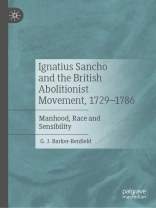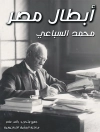This book highlights the significant role played by Ignatius Sancho (c. 1729-80), the first black man to vote in England, in the British abolitionist movement. Examining the letters of Sancho, and especially his correspondence with the influential novelist and preacher, Laurence Sterne, the author analyses the relationship between sensibility and antislavery in eighteenth-century Britain. The book demonstrates how Sancho navigated the bawdy, riotous conditions of commercial London, which was the headquarters of a growing and war-torn Empire. It shows how Sancho mastered the fashionable and gendered language of the culture of sensibility, navigating the contemporary issues of race, slavery, and politics. The book also touches on the White metropolitan and colonial preoccupation with Black men’s sexuality, which was intensified by the Somerset decision of 1772. Sancho’s was a unique and influential voice in eighteenth-century Britain, making this book an insightful read for scholars of anti-slavery as well as gender, race and imperialism in British history.
Table of Content
Chapter 1: “Considering slavery – what it is’: Ignatius Sancho Appeals to Laurence Sterne.- Chapter 2: “So many of her brethren and sisters”: Sterne Replies to Sancho.- Chapter 3: “The black must be discharged”: Mansfield’s Decision and its Aftermath.- Chapter 4: “The poor fellow foams again”: Castration for the Public Good.- Chapter 5: “A Son of Afric”: Amid Riots and Imperial War.- Chapter 6: “To produce remorse in every enlightened reader”: Frances Crewe’s Publication of Sancho’s Letters.- Chapter 7: “Too well known to make any mention necessary”: Sancho’s Impact.
About the author
Graham (Ben) J. Barker Benfield is Professor Emeritus of History at the University at Albany – State University of New York, USA.












